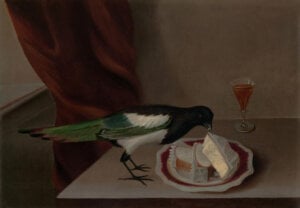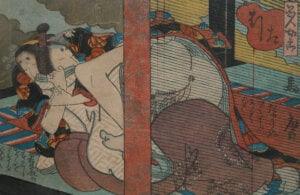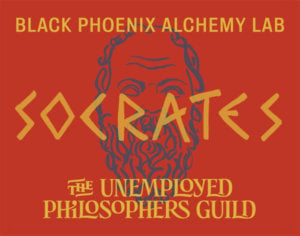Fig - Black
-
Breathing Destruction From Their Lips Like Flame Perfume Oil
Add to cartDried red fruits, pink peppercorn, black fig, nagarmotha, and vetiver.
-
English Magpie Eating Cake Perfume Oil
Out of StockRubens Peale
Vanilla sponge cake, royal icing, pudding wine, honey dust, and black fig.
-
Nasty Woman Perfume Oil
Add to cartAs you have no doubt heard, during the third presidential debate, Hillary described her plan to raise taxes on the rich in order to fund Social Security. She took a swing at him over him being a tax dodger (which he is).
“My Social Security payroll contribution will go up, as will Donald’s – if he can’t figure out how to get out of it.”
Trump interrupted her and said, “Such a nasty woman.”
These are two things uttered by the same man within the same hour:
“Such a nasty woman.”
“No one has more respect for women than me.”
Amazing.
Let’s put this pussy-grabbing, racist, predatory, misogynistic, hateful, irresponsible, ignorant, immature grotesquerie out of politics for good, and do what we can to ensure that he and his ilk never cast their miserable shadows over our political process again.
Nasty Woman: black fig and patchouli, filthy bourbon vanilla, honeyed amber oud, and loukhoum.
Proceeds will be split between Planned Parenthood and EMILY’s list.
plannedparenthood.org
emilyslist.org
Photo: Women marching in national suffrage demonstration in Washington, D.C., May 9, 1914.
-
No Longer Can I Resist Perfume Oil
Out of StockIndigo and crimson vegetal musks, sweet red oud, sandalwood incense, narcissus petals, orris butter, golden bergamot, ambrette seed, and black fig.
-
Socrates Perfume Oil
Add to cartSOCRATES of Athens (c. 470 BCE – 399 BCE)
To Socrates, “the unexamined life is not worth living.” He did his examining publicly, by elenchus, which is italics for “the question-and-answer analysis of ideas.” (We still call this “the Socratic Method” and it still bugs people.)
Socrates portrayed himself as a “gadfly” to the torpid “great and noble steed” of the state, and powerful Athenians agreed, though they were not universally grateful.
Socrates also claimed he had a mystical inner voice (his daimonion) and it dissuaded him from such deeds as seeking high office. Ineluctably, this daimonion and his many other peculiarities were weaponized by Athenians of high office.
Despite his patriotic service – as soldier, as divinely-appointed nuisance of Athens – Socrates was tried, convicted of impiety and corruption of the youth, and sentenced to death by drinking Conium maculatum, which is italics for poisonous hemlock.
Socrates remained Socrates to the last.
…I had not the boldness or impudence or inclination to address you as you would have liked me to address you, weeping and wailing and lamenting, and saying and doing many things which you have been accustomed to hear from others, and which, as I say, are unworthy of me. But I thought that I ought not to do anything common or mean in the hour of danger: nor do I now repent of the manner of my defense, and I would rather die having spoken after my manner, than speak in your manner and live.
– Plato-s ApologyInspired by anointing oils used in the philosopher’s time after partaking in public baths: orris root, ambergris accord, frankincense, olive blossom, black fig, and marjoram.




